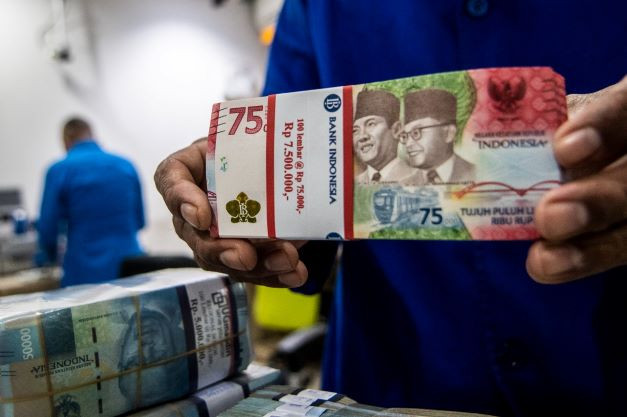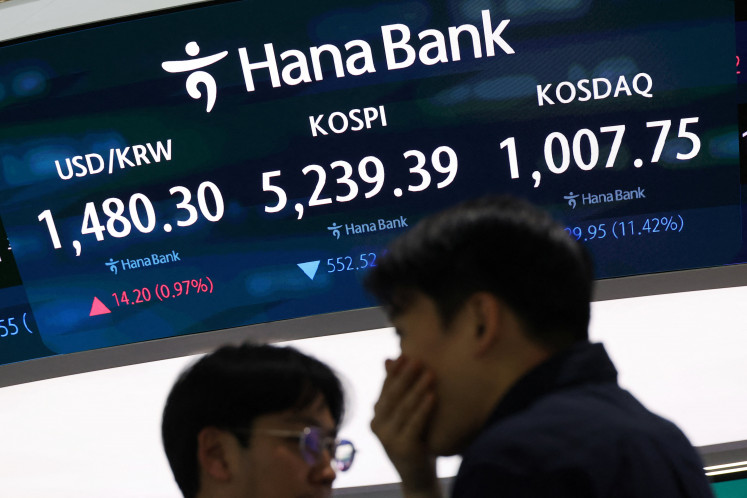Popular Reads
Top Results
Can't find what you're looking for?
View all search resultsPopular Reads
Top Results
Can't find what you're looking for?
View all search resultsWeakening rupiah may increase spending on fuel subsidies, says analyst
Since the Indonesian Crude Price (ICP), an oil price benchmark used for budget calculations, is in US dollars, the cost of fuel imports is set to see a sharp spike.
Change text size
Gift Premium Articles
to Anyone
A
weaker rupiah may impose a burden on the state budget since it will increase the amount of fuel subsidies that the government has to pay to secure domestic fuel supplies, an analyst has warned.
Senior analyst at the Indonesia Strategic and Economic Action Institution Ronny P Sasmita said that the weakening rupiah would lead to a spending surge on subsidies, particularly for fossil fuels.
“Half of our fuel supplies are imported from the global market and paid in United States dollars. So there will be an increase in the cost of fuel imports. The value of this increment is equal to the difference between the dollar price assumed by the state budget and the current dollar price today,” said Rony.
Read also: Govt confident financial sector ready to withstand extreme scenarios
The recent depreciation of the rupiah is a result of the strengthening of the US dollar, driven by the market anticipating the potential for higher interest rates and the robust US economy. Since the Indonesian Crude Price (ICP), an oil price benchmark used for budget calculations, is in US dollars, the cost of fuel imports is set to see a sharp spike.
The rupiah’s exchange rate on Monday morning was Rp 15,728 per US dollar, according to RTI Business. The benchmark dollar exchange rate used in the state budget is only around Rp 14,800.
The average price of crude oil was recorded at US$77.70 per barrel in September, which is still within the range of the 2023 state budget benchmark. The price had increased to $89 per barrel by the end of October, slightly below the state budget benchmark of $90 per barrel.
Finance Ministry Director General of Budget Isa Rachmatarwata acknowledged the problem, saying that the budgeted subsidies might fall short since the rupiah is now weaker than previously projected in the state budget.
Separately, Finance Minister Sri Mulyani said that the depreciation of the rupiah against the US dollar up to this point had not had a significant impact on energy-subsidy expenditure according to the state budget, although she added that the ministry was actively monitoring the situation.
“We will monitor everything. Oil prices, exchange rates, interest rates – we will see how they adjust to the state budget," she said.











